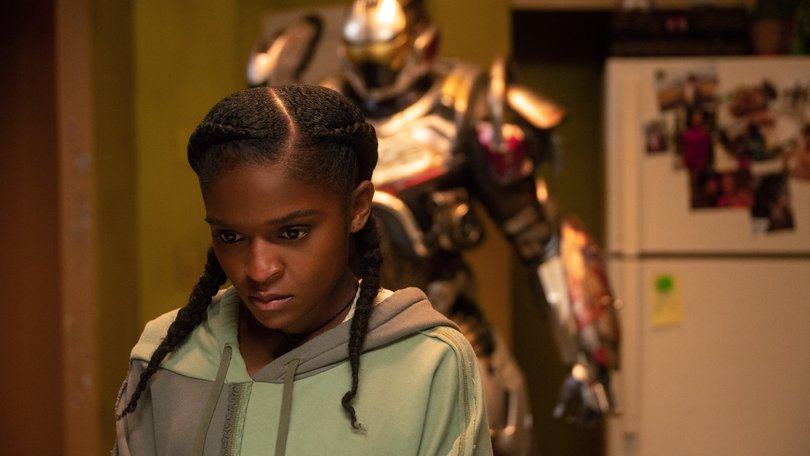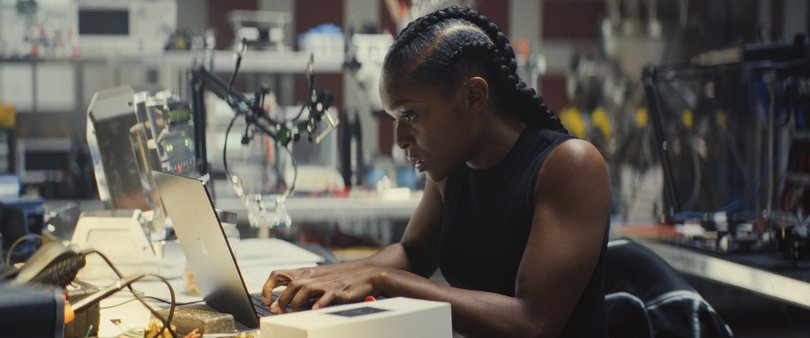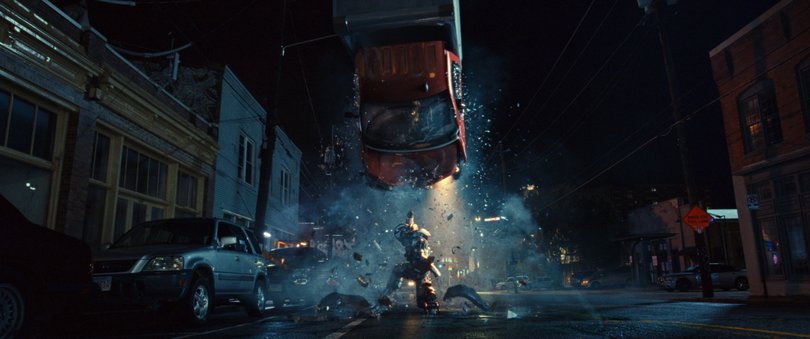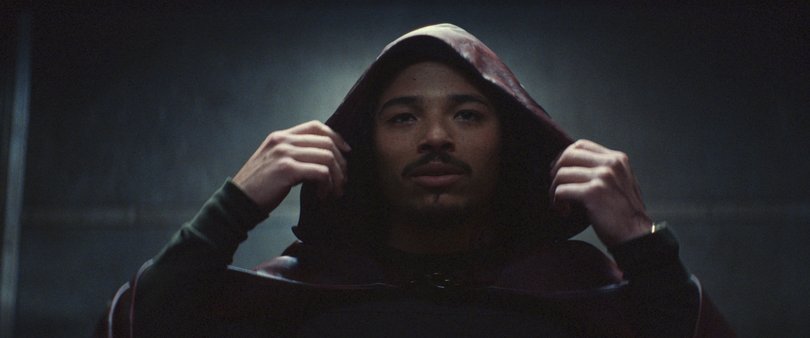Ironheart streaming review: A likeable but not essential Marvel series
Ironheart has a great central character in Riri Williams, a young woman so smart, she could rival Tony Stark in engineering ingenuity. But that doesn’t make her show mandatory viewing.

Five years ago, Marvel Studios relaunched its TV and streaming division with the ambition to link its small screen adventures with its cinematic universe.
The idea was that for a comprehensive picture of its interconnected narrative world, you were going to be well served – a handful of movies a year, supplemented by big-budget shows at home.
It was coming off a couple of wildly successful pre-pandemic years when only one movie made below a billion dollars, and it had to serve the voracious master of a newly launched streaming platform.
Sign up to The Nightly's newsletters.
Get the first look at the digital newspaper, curated daily stories and breaking headlines delivered to your inbox.
By continuing you agree to our Terms and Privacy Policy.That first show, WandaVision, signalled its creative aspirations – it was high-concept, thematically rich and centred on a silver screen character who already had cultural cache and audience resonance.
It was also the start of the studios’ wobbles. Part of it was the pandemic, part of it was over-saturation, part of it was the challenges of introducing new characters, and part of it was the creatives couldn’t keep up with executives’ demands, so the quality suffered and discourse turned.
Marvel projects were no longer guaranteed fun times, they were homework doled out by a mega-corporation.

With its commitment to dial back the volume of releases both theatrical and at-home, Marvel also realised that the connection between its movies and shows were no longer seen as a plus. Audiences didn’t want to have seen everything else to watch one thing.
Its streaming unit has changed its opening logo so that it is now clearly identified as Marvel Television, rather than the Marvel Studios framer it once ran with.
The challenge then is to create shows that aren’t essential but not diminish the individual stakes. How do you simultaneously communicate to a wider audience that you should watch a streaming series but also that you don’t HAVE to?
It’s a really tough proposition, and it’s not a failure that Marvel is still navigating how to do this.
That’s the context into which Ironheart is released.

The six-episode miniseries is about the character of Riri Williams (Dominique Thorne), a genius-level engineer whose mind works with as much acuity as Tony Stark’s. She’s meant to take on Iron Man’s mantle.
Riri has already been introduced in the MCU, as a supporting character in the 2022 film Black Panther: Wakanda Forever, where she MacGyver-ed a bunch of nifty things using vibranium, one of the special, fictional compounds in this narrative universe.
In her own series, Riri has returned to her hometown of Chicago, after yet another disaster in the lab led to her expulsion from MIT. Without means to fund her very expensive projects, including her Ironheart suit, she gets mixed up in a gang of thieves led by Parker Robbins/The Hood (Anthony Ramos).
Parker is targeting a series of businesses, that will ultimately be connected to his specific agenda, and he seems to have superhuman powers tied to this weird-looking cloak. He may wax lyrical about haves-and-have-nots, but what he’s driven by is far more self-serving.
Or so it seems, but it could also be the malicious influence of his magical cloak, the origins of which will be revealed towards the finale with the confirmation of a character that has long been speculated and anticipated within the MCU fandom that is also into the comic books source material.

This intersection of technology/science with magic hasn’t been explored so explicitly within the MCU before – most of the characters seem to be powered by one or the other – and while Ironheart starts the conversation, it doesn’t finish it.
As a lead character, Riri Williams is more than enough to anchor a show – she’s not just a young, Black woman with a gift for STEM, but one who is shaped by her community, her history, and the confidence that she will change the world with her inventions.
Her belief in her talent doesn’t come off as hubris, because it’s backed up by fact. She really is that brilliant. She also doesn’t live in a world in which other people have told her she’s entitled to greatness by virtue of the accidence of birth (as a rich, white man, for example).
That she doesn’t come from money is the obstacle, and drives her to some poor, albeit understandable, decisions.
Thorne has a winning screen presence and is easily the best part of the series. Hopefully, she will hopefully have a longer tenure in the MCU – she hasn’t been confirmed for the upcoming Avengers all-in, but Thorne has teased the possibility.
The series as a whole is slight. It’s perfectly amiable and its one overarching story over its six episodes (which drops across two batches of three each this week and next) will breeze through quickly.
But it feels ephemeral, not essential, even though it sets up a figure that will definitely weave through other stories.
It’s the Marvel conundrum, how do you get audiences excited enough to tune in, without the whiff of obligation? It has to be something so undeniable to transcend that challenge.
Ironheart is not necessarily that, but it is a likeable series with a cracking lead. It may not rock your world, but you also won’t regret time spent in Riri Williams’ company.
Ironheart is streaming on Disney+

